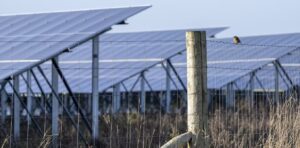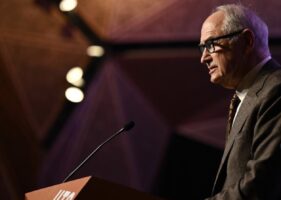Brazil has joined a growing list of countries committing to increasingly ambitious climate policies, with a pledge on the weekend to its slash greenhouse gas emissions by 43 per cent by 2030 as its contribution to a United Nations climate agreement.
Reuters reports that President Dilma Rousseff presented the country’s pledges during a speech at the UN General Assembly in New York on Sunday, saying that the targets, based on a reference year of 2005, are more ambitious than those of most developed countries – Australia’s included.

And while Brazil’s new policy is one of the largest targets announced by any country so far, analysts have noted that it is undermined somewhat by the inclusion of reductions from past efforts against deforestation to help it reach the high target.
Indeed, the fact that it takes into account huge emissions cuts from the last decade might make it insufficient to prevent a global temperature increase of more than 2 degrees Celsius, Reuters says.
“It’s significant that Brazil, among the world’s largest emitters, has the largest reduction target. But it is insufficient considering the potential the country has to do more,” said Carlos Rittl, head of Climate Observatory.
The news from Brazil follows China’s confirmation late last week that it would launch its national emissions trading scheme, covering “key industry sectors such as iron and steel, power generation, chemicals, building materials, paper-making, and nonferrous metals”.
The announcement was made by Chinese President Xi Jinping during his visit to the US last week – an effort described by Macquarie University’s John Mathews as “a propaganda coup.”
“It will not be lost on observers that China will be introducing the very kind of scheme that failed to get through the US Congress, passing the House but being defeated in the Senate,” Mathews said on The Conversation.
Mathews also noted that China was not relying on market-led cap-and-trade initiatives alone, but was also reducing coal consumption in its power sector through direct state intervention, as well as actively promoting solar PV and wind power through state-guided targeted investment, national planning, and local promotion programs.
“So the new scheme will take its place as an initiative that helps to solidify China’s trajectory towards greening its energy systems – after direct state action has done the heavy lifting,” he said.
Back to Brazil, Rousseff has also reaffirmed the country’s commitment to ending illegal deforestation in the Amazon, and has pledged to offset emissions coming from regulated deforestation.
“We have one of the world’s largest populations and GDP, and our targets are as ambitious or more ambitious than those of developed countries,” she said.
Brazil also plans to reduce emissions by increasing the share of renewables (excluding large hydroelectrics) in power generation to 23 per cent by 2030 from 15 per cent currently.







